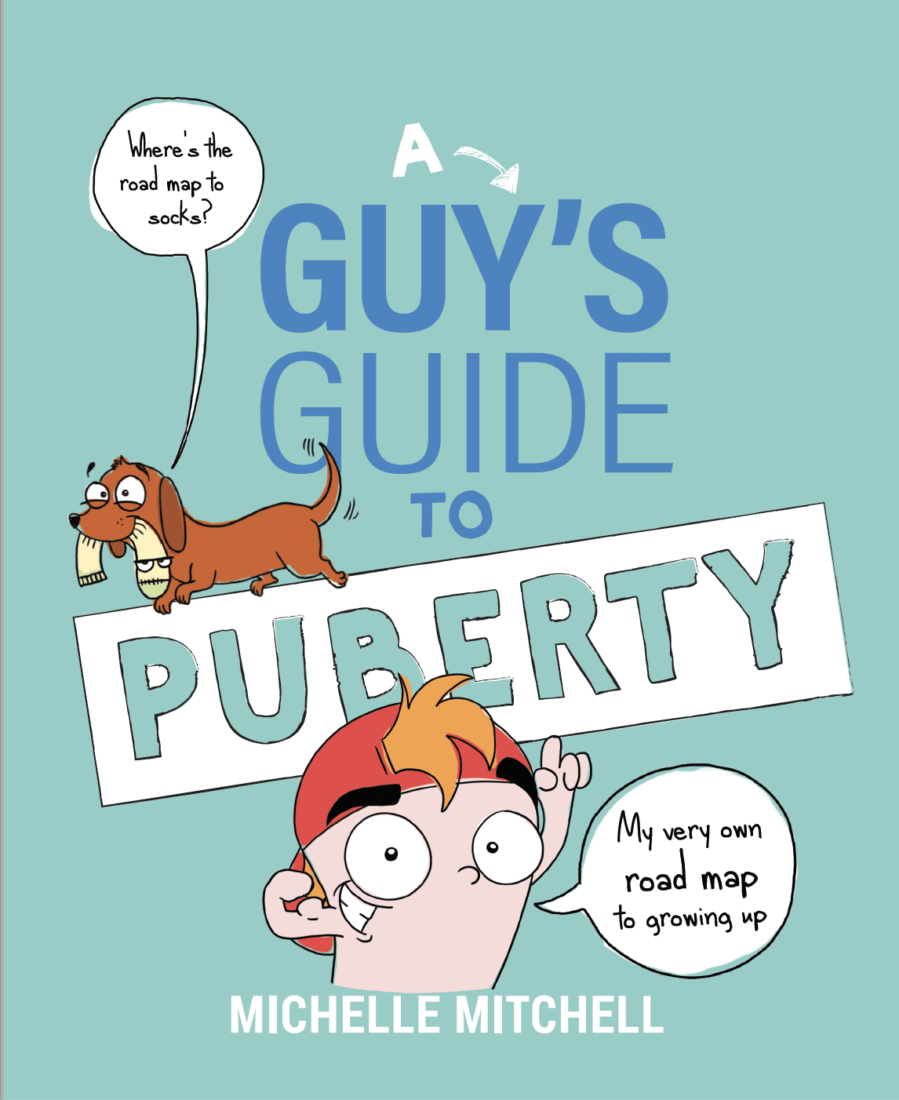michelle's blog
Supporting a Body Conscious Tween: Practical tips for worried parents
read

A mum came to my last night with questions about how to respond to her 11 year old daughter. Her daughter had begun standing in front of the mirror, “Look at my stomach. I think it’s bloated. I’m putting on weight.” Her mum responded, “You are skin and bone. You look like you need to eat a burger.” And then she worried she’d said the wrong thing. Why was she needing to talk to an 11 year old about her weight? …. and where were these ideas coming from?

First up, I want all parents to know that tweens are notorious for body image issues. Their body confidence might wobble as they confront the rapid physical, emotional and social changes associated with puberty. This wobble might surface in girls refusing to play sport or attend ballet or wear certain clothing. It might surface in boys feeling self-conscious and timid around those larger and stronger than them. Like in every area of life, parents can offer a steady hand during these times.
A quick definition: Body image is how you think and feel about your body and what you imagine that it looks like. It may or may not be a reflection of your actual appearance. Poor body image affects young people in so many ways – eating disorders, depression, social anxiety and low self-esteem are just a few – so we want to get in early and install confidence and self-love in our tweens.
I find that discussions about body image issues are often dominated by ideals and theory, both which are difficult to transfer to young hearts. Tweens are concrete learners and need tangible, practical information and real life examples in order to learn. That is why I wanted this blog post to be super practical. Below I have included some practical ways to support thoughts a child who has suddenly become body conscious:
Tip 1: Tween are journeying through a period of time when their body is literally changing, so it WILL feel different. It may be widening, or they may be holding body weight in preparation to grow. Changing hormones can determine how much fluid bodies hold too. If they (and we) understand that it is a normal part of their development, it may help normalise it. A low degree of body image issues are normal at this age.
Tip 2: Approach negative body talk with equal parts of empathy + education. Education says, “Your body is amazing. Do you know what it looks like in there? Let’s talk about what’s normal and what isn’t. Do you know how hard this body is working for you?” Empathy says, “I remember wondering about my weight at your age. There is a lot changing at once, and all your friends will be experiencing puberty differently.”
Tip 3: Our tweens are surrounded by socially constructed ideas about beauty. They do digest media messages about health as well as beauty from the fashion industry. Some are unhealthy and others aren’t relevant to them. They may define beauty based on what they believe is acceptable and popular, and then question whether they fit into those constructs. That is why it is so important to be know what they are looking at online and help them question / understand what they see and hear.
Tip 4: Tweens are very open (too often) to feedback about themselves in both real and online conversations. Awareness of other’s judgments are a real part of growing up. There is nothing harder than someone’s body being judged, criticised, used or rejected by others. There may be times when someone’s negative comment can have a big impact on them. Our reassurance and education around varying body shapes and sizes may not soften the feelings of self-consciousness, but it may give them another lens to see things through. Your acceptance and respect are a great foundation.
Tip 5: Puberty is a time when normal sensitivity is heightened. Self-criticism, self-consciousness and moodiness go with puberty. Our children’s relationship with their body will evolve and grow as they do. That being so, we need to educate them about the brain and emotional changes associated with puberty, and give them time to develop an appreciation for it.
Tip 6: Rather than talking about “fat” and “thin,” focus on eating a healthy diet and staying physically active. Be conscious about using nicknames and joking about people who are overweight. Words are powerful. Our girls particularly need balanced affirmation that doesn’t focus on beauty as their source of acceptance. Please don’t stop telling your daughter how beautiful she is, but reinforce that she is no more or less beautiful than anyone else.
Tip 7: If you are able to keep your child engaged in a team sports or some sort of physical exercise, do so. Research tells us that the average drop out age for team sports is 12 for girls and 14 for boys. A personal trainer or sports coach can have a huge impact on body image. Through exploring the function and limits of their body, they discover their body is strong, capable, intelligent…and not ornamental.
Tip 8: Trusted adults have such a great influence on children’s body image. They hear and see the way we treat our bodies – from what we eat to how we look after it. Our actions carry a lot more impact than our words. If we have healthy eating habits and lifestyles choices, our children reap the benefits. Most importantly, they see if we enjoy life. Make your family a happy family that laughs often. This will go a long way in helping your tween stay balanced.
Tip 9: Adolescence discover who they are through experimentation. That being so, “trying on” identities is developmentally normal. We must accept that tweens may genuinely want to try to mimic or look like someone else. They may temporarily reject themselves on the road to self-discovery and this may not be an indication of serious body image issues.
Tip 10: Research tells us that majority of young people struggling with their body image also struggle with solving other problems in life. This is where they need practical strategies and tools to overcome life’s issues. We also need to see body images issues in context with their overall mental health. Example: If young people don’t have problem solving skills they may stop eating when they get stressed, feel fat or depressed, as a way of coping.
Tip 11: Establishing personal boundaries is an important part of growing up. Learning to say ‘no’ will help them take care of themselves in every area, including their health. They will need to be able to say “no” to distorted thoughts in order to grow a healthy body image. They will need to say “no” to unhealthy eating habits that make their body feel less than its best. “No’ is an important part of self-care.
Tip 12: Lastly, research shows the better educated tweens are, the more confidently they approach this stage of life and the quicker they will adapt to changes. Education around diet, exercise, health, style, shopping and sexuality are all linked to healthy mindsets about body image. If your son or daughter’s eating habits are really worrying talk to your doctor, a dietician or psychologist.
RECOMMENDED READING: You might like to check out the following books for tweens (8-12 years old) A Girl’s Guide to Puberty and A Guy’s Guide to Puberty.
nEW here?
If you are new to my blog, I’m guessing that someone you trust mentioned my name, or you stumbled upon me online. This site is full of helpful parenting ideas that will help you make decisions with more confidence.
If you have something specific you are looking for, why not search the topics below. If you just want to browse, why not start by reading my most popular posts.
If you would like to receive Michelle’s blog via email each month, simply sign up below, indicating if you are a parent or a professional.

top reads
- 1. Try Being 5 Minutes Late: Common Sense Ideas to Promote Resilience
- 2. How to Deal with an Entitled Teen: Strategies You Can Use Today
- 3. Choosing a Counsellor: Ideas That Could Make All the Difference
- 4. Even If: Conversations to Combat Anxiety
- 5. What to Say if Your Child is Self-Harming: A Guide to the Initial Discussion


